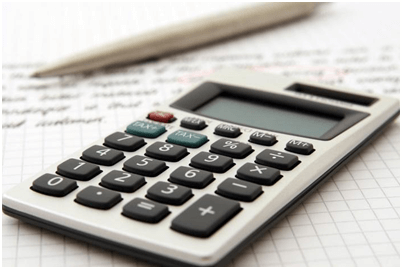
When you’re setting up your small business, you have all sorts of things to figure out. And, most of your energies are centered at ensuring that you keep the revenue coming, and rightly so. If there’s no money coming in, there’s no point to the whole act of doing business anyway. And, when you do have money coming in, you need a system to manage it – an accounting system. Without a proper accounting system in place, you’d be at an increased risk of not understanding your financial position, you may end up paying more taxes than you should be paying, and you may even be penalized for making honest mistakes. And, you need small business accounting to prevent all of these things.
Tracking Expenses and Deposits
Tracking, labeling, and categorizing every expense you’re incurring is an essential practice of accounting in general. Doing so is imperative in order to make sure that your accounts tally and you’re able to recollect all those expenses that are eligible for a deduction. Also, should the Canadian Revenue Agency decide to come down to your office for a round of audit, it’s really critical that you have all the receipts to prove the expenses incurred. Similarly, it’s also important that you safely record those deposits in order to save yourself from paying unnecessary taxes.
Maintain a Bookkeeping System
In case you’re not familiar with the term altogether, it may be a good idea to understand why bookkeeping is an important part of your accounting framework. Bookkeeping is the simple (and almost constant) process of recording every transaction you incur and making the requisite reconciling bank statement that is applicable. Bookkeeping may appear to be a simple process, but it sure consumes time and requires a fair share of focus on your part. Small businesses tend to outsource bookkeeping to unburden them of the responsibility.
Chart down How You Plan to Accept Payments
Business owners tend to love the idea of money rolling in (especially towards the beginning) and they sometimes don’t think about how they accept their payments. Here’s an example that you may relate to:
Client: “Thanks, Matt. Nice doing business with you, do you accept card payment?”
You: “Erm… Hang on”
Your primary options include a convenient Shopify Payment if you want to avoid setting up a merchant account for a card payment. Your other options include a PayPal, and/or setting up a merchant account if you believe accepting card payment is important. Maybe you should avoid the cash route, as the Canadian Revenue Agency wouldn’t quite approve.
Figure Out the Taxes
We know taxes can be complicated, but there’s simply no way around it. You need to understand how much sales tax you would be required to pay if you are eligible to pay GST/HST (generally applicable for businesses that earn revenue in excess of $30,000 a year). Then we have your year-end tax returns, which can be a really confusing affair as not all business owners are aware of those expenses that are eligible for a deduction.
Accounting can be a complicated, but it remains an extremely essential task that small businesses can’t afford to go wrong with. After all, it directly affects your profitability. It is for this reason that small businesses tend to hire an accountancy firm to help them in the process. If you intend to go that route, then here’s how you can reach us.
